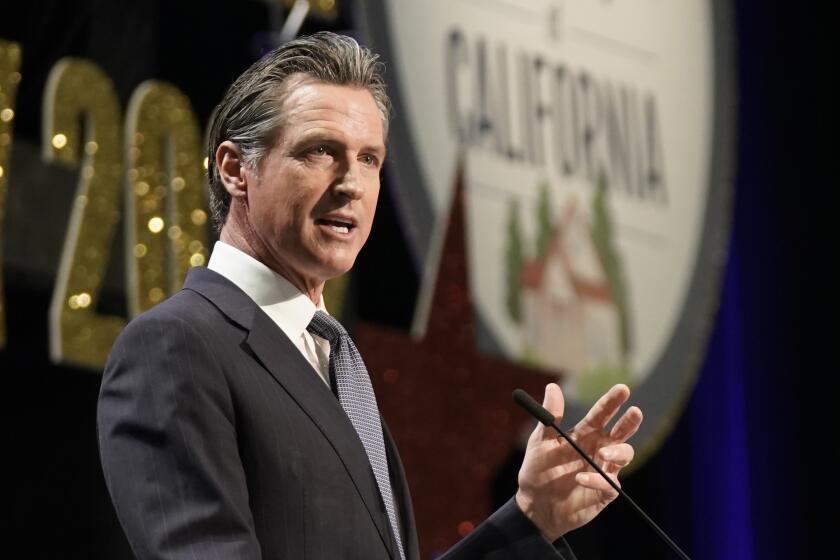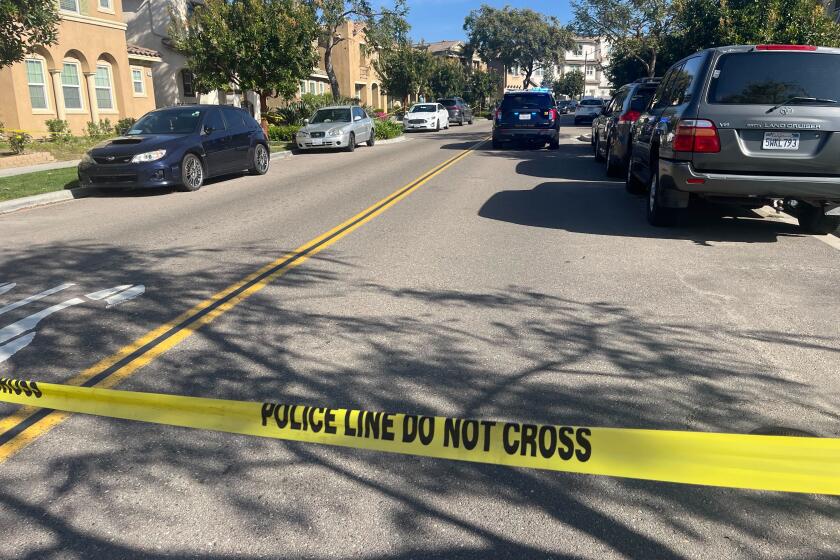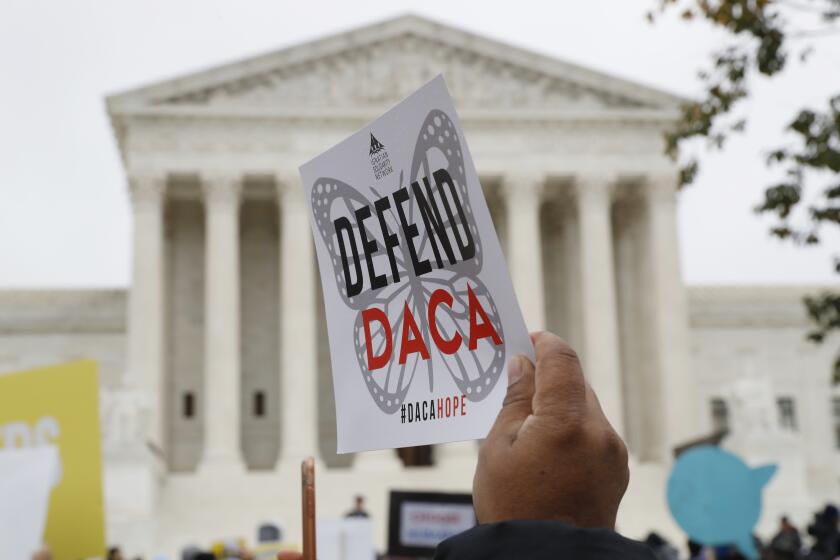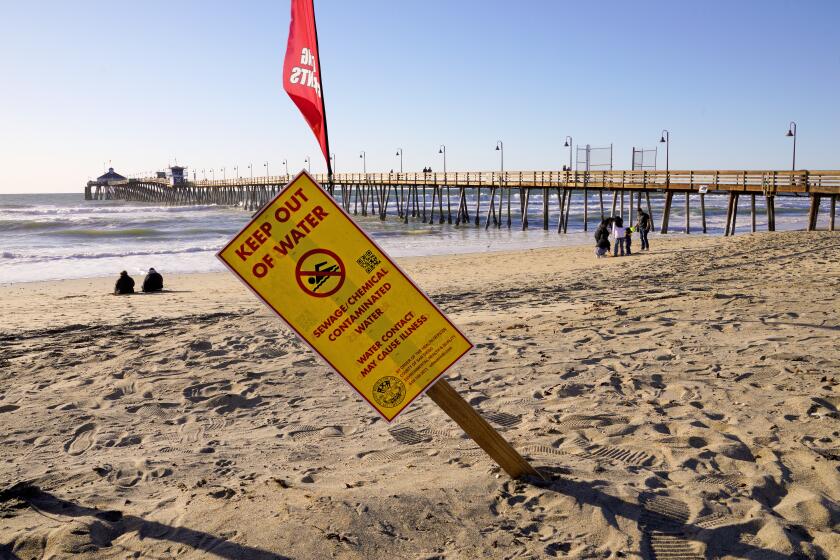Editorial: Trump’s border wall ‘emergency’ money grab must be blocked by Supreme Court
President Donald Trump’s decision to declare a national emergency Friday over what he claims is a humanitarian and national security crisis at the U.S.-Mexico border is outrageous and incomprehensible and sure to face a long list of legal challenges. Yes, the surge of Central Americans seeking asylum in the United States is a legitimate issue, one that Democrats should not downplay. Yes, border security is a serious concern. But in the big picture, there is no disputing what official government data shows: The border is much quieter than it has normally been over the past 50 years. Trump’s assertion Friday that we are seeing “an invasion of our country with drugs, with human traffickers, with all types of criminals and gangs” is delusional.
Yet legal experts say it is not at all clear that federal courts will ultimately invalidate Trump’s emergency declaration. While it’s true that in 1952, during the Korean War, the Supreme Court rejected President Harry Truman’s declaration of a national emergency and his attempt to nationalize private steel companies to prevent a strike by steel workers from hurting the U.S. military, that’s not the precedent that matters. Instead scrutinize the National Emergencies Act, which Congress passed in 1976.
The law is a well-intentioned attempt to give the executive branch the flexibility it needs to quickly address problems. But it offers no definition of what an emergency is — setting a standard under which an emergency is anything the president says is one. According to The Washington Post, each of the three presidents before Trump — Bill Clinton, George W. Bush and Barack Obama — declared at least a dozen “national emergencies.” Most involved financial sanctions on foreign individuals, groups and governments. Were they really “emergencies”?
Yet even if the courts ultimately rule that an emergency is whatever Trump says is an emergency, they must push back on the illicit power grab that Trump is using his declaration to justify: his plan to divert $6.6 billion from the Pentagon and the Treasury Department to supplement the $1.375 billion that Congress allocated Thursday for the construction of a border wall. This violates the constitutional requirement that spending bills originate in the House of Representatives and that Congress must approve significant expenditures.
Unfortunately for Americans who believe in the separation of powers, neither Democratic nor GOP lawmakers have clean hands on the issue of the proper use of executive power. Republicans had no problem with George W. Bush appending signing statements to 100-plus laws on terrorism, affirmative action and many other policies that made clear he had no intention of honoring his constitutional responsibility to act so that legally enacted laws “be faithfully executed.” Democrats had no problem with Obama rewriting immigration laws with his executive order establishing the Deferred Action for Childhood Arrivals program or making unilateral changes in the Affordable Care Act. Just as with their flexibility on whether Senate filibusters are a fundamental feature of democracy or an assault on democracy, members of both parties view power grabs through the prism of whether it helps or hurts their causes. This is corrosive, to say the least.
What America needs is for the Supreme Court to deliver a moment of national clarity. After the contentious Brett Kavanaugh confirmation process and the partisan way people perceive justices, this may seem like a long shot. But a 9-0 ruling that holds that a president can call a poorly made grilled cheese sandwich a national emergency — but that he can’t unilaterally appropriate billions of dollars — would be a welcome development. Presidents aren’t kings. It’s time the high court points this out.
Twitter: @sdutIdeas
Facebook: San Diego Union-Tribune Ideas & Opinion
Get Essential San Diego, weekday mornings
Get top headlines from the Union-Tribune in your inbox weekday mornings, including top news, local, sports, business, entertainment and opinion.
You may occasionally receive promotional content from the San Diego Union-Tribune.










